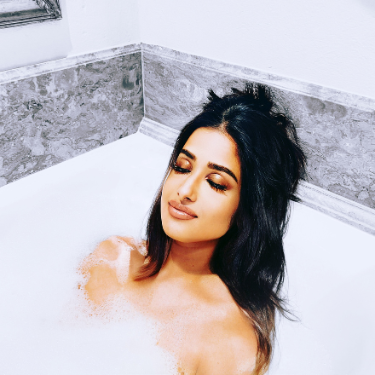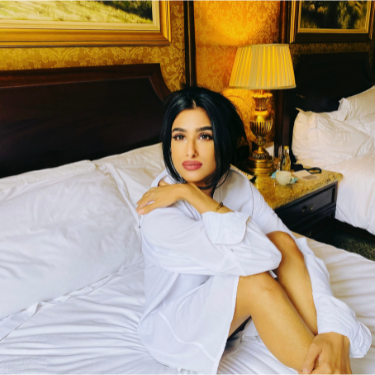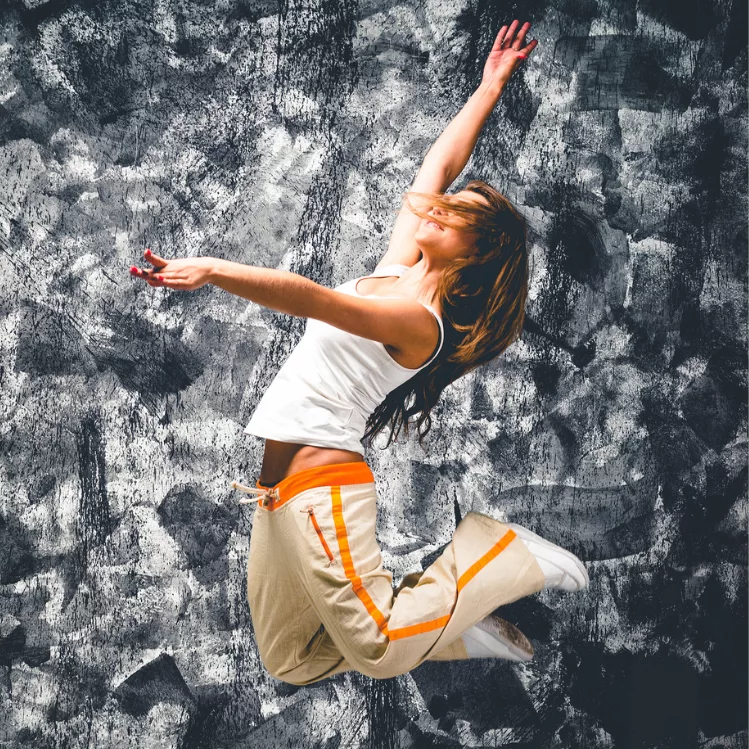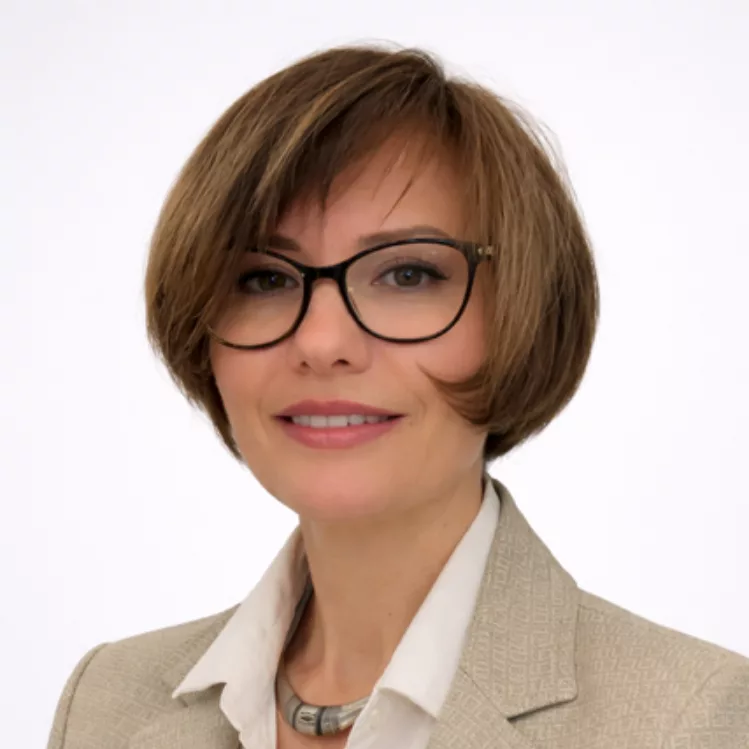
Shanaaz’s Journey: From Corporate Success to Soulful Living
Shanaaz’s story is a powerful testament to the courage it takes to walk away from a life that looks perfect on the outside but feels empty within. After years of excelling as an IT consultant in the corporate world, she found herself at a crossroads, questioning if success measured by titles and paychecks was truly enough. It was in this moment of deep reflection that Shanaaz chose to bet on herself, leaving behind stability to embark on a journey of self-discovery and purpose. Her path led her through the challenges of postnatal depression, an awakening of her spiritual gifts, and ultimately, a mission to empower women to reclaim their worth. Today, Shanaaz stands as a beacon of resilience and transformation, inspiring others to step into the lives they were meant to live.
What was the turning point that inspired you to leave the corporate world and embark on your journey of self-discovery?
I reached a point where I felt like I was just existing, not truly living. On the surface, I was doing everything “right”, working hard, chasing stability, and meeting expectations but deep down, I felt disconnected from myself. I started questioning if this was all life had to offer. Was I going to spend my best years stuck in a cycle that didn’t fulfil me?
The real turning point came when I realized I had been outsourcing my sense of worth to external validation, titles, paychecks, and recognition from others. But none of it made me feel whole. I was pouring so much energy into a system that saw me as replaceable while neglecting the version of me that was meant to do something greater. That realization was both terrifying and freeing.
I knew I had to bet on myself. Leaving the corporate world wasn’t just about walking away from a job, it was about reclaiming my time, my creativity, and my purpose. It was about choosing fulfilment over familiarity, freedom over fear. That decision set me on a path of self-discovery, reinvention, and stepping into the life I was meant to live.
Can you describe your experience navigating postnatal depression and how it impacted your sense of identity?
I don’t think anything truly prepares you for how deeply postnatal depression can shake your sense of self. Motherhood is supposed to be this beautiful, instinctive transition, but for me, it felt like I had lost myself in the process. I remember looking in the mirror and not recognizing the person staring back at me. My body had changed, my emotions felt unpredictable, and the things that once made me feel like me felt so distant.
The hardest part was the guilt. I loved my children more than anything, but I couldn’t understand why I felt so empty, so disconnected. Society paints this picture of motherhood as purely joyful, and when your experience doesn’t match that, you start questioning yourself. Am I a bad mother? Am I not strong enough? It was an isolating place to be.
But in that darkness, I slowly started rebuilding. I had to redefine who I was, not just as a mother but as a woman, as an individual. I learned that motherhood wasn’t about losing myself, it was about evolving. It forced me to confront and heal parts of myself I had ignored for years and pushed me to start prioritizing my mental and emotional well-being in ways I never had before.
Postnatal depression was one of the hardest things I’ve ever faced, but in many ways, it was also the catalyst for my reinvention. It showed me the importance of self-compassion, of asking for help, and of allowing myself the grace to grow into this new version of myself.
How did you first become aware of your spiritual gifts of mediumship?

It wasn’t one big moment, it was a series of small, unexplainable experiences that kept happening until I couldn’t ignore them anymore. As a child, I was always sensitive to energy. I would get strong feelings about people or situations before anything even happened. I thought everyone experienced this, so I never questioned it.
But as I got older, the experiences became more intense. I would have dreams that felt more like visitations, sudden knowing about things I had no logical way of knowing and moments where I could feel the presence of something beyond the physical. At first, I dismissed it. I chalked it up to coincidence or my imagination running wild. But the more I tried to push it away, the stronger it became.
The real turning point came when I started embracing my intuition instead of doubting it. The more I trusted the messages I was receiving, the clearer they became. I realized this wasn’t just about me, it was a gift meant to help others find healing, closure, and guidance.
Accepting my mediumship wasn’t easy. It challenged everything I had been taught about reality. But once I surrendered to it, everything started making sense. It was like finally stepping into a truth I had always known but was too afraid to claim.
You mentioned that healing is most effective when science and psychology are combined with spiritual practices. How did you come to this realization?
I came to this realization through my healing journey.
It came from my journey of healing, which was never a linear path. For years, I relied on traditional methods of therapy, journaling, and self-help books to manage my emotions and mental health. While they provided some relief, there was always a part of me that felt like something was missing. I had reached a point where I was still carrying around unresolved emotions and blockages that my mind couldn’t seem to process fully. I was stuck and struggling.
That’s when I started exploring spiritual practices. I started metaphysics, Meditation, energy healing, and tapping into my intuition to unlock deeper layers within me. These practices helped me access parts of myself I hadn’t been able to reach through logic alone. It was like connecting with a deeper truth, something beyond just thoughts and behaviours.
As I continued exploring and experimenting with these modalities and techniques, I realized that healing isn’t just about the mind or just about the spirit; it’s about integrating both. Science and psychology offer tools to understand and work with our emotions, while spirituality offers a more holistic approach, connecting us to our higher selves, intuition, and universal energies. Combining both felt like the missing puzzle pieces that finally brought everything together for me.
What I learned was that we’re multi-dimensional beings. We can’t just heal one part of ourselves without addressing the other aspects, mental, emotional, and spiritual. When you blend these two realms, the healing becomes more complete and more profound. It’s like permitting yourself to be whole, not just in the mind, but in the heart and soul as well.
What inspired you to extend your mission beyond personal healing and focus on empowering women?
At first, my healing journey was just about me, understanding my wounds, breaking toxic cycles, and childhood trauma and stepping into the version of myself I always knew I could be. But as I grew, I started noticing something: so many women around me were struggling with the same things. The self-doubt, the people-pleasing, the fear of taking up space, financial difficulties and the struggle to fully own their power. It wasn’t just my story, it was ours.
I realized how much we, as women, have been conditioned to shrink ourselves. To put others first, to second-guess our intuition, and to feel guilty for wanting more. And once I started breaking free from that, I knew I couldn’t keep it to myself. It became impossible to watch women settle for less when I knew what was possible on the other side of healing and self-reinvention.
That’s why my mission expanded. Because I don’t just want to heal, I want to see other women rise. I want them to step into their confidence, raise their standards, and create lives that truly align with their worth. I’ve lived through the fear, the self-doubt, and the discomfort of transformation, and I know how isolating and scary it can feel. Especially when those around you don’t understand what you’re going through, but I also know how powerful it is to have someone remind you that you can do it, that you’re capable of more than you think.
Empowering women isn’t just something I do, it’s something I live. Because when one of us rises, it creates a ripple effect. And I want to be part of the movement that ensures more women step into the lives they were always meant for.
Why is fostering a community where women support one another so important to you?
For so long, I believed I had to do everything on my own. I thought strength meant independence to the point of isolation, but the truth is, the real power comes from the community, especially among women. There’s something so transformative about being surrounded by women who uplift, encourage, and genuinely want to see each other win. It changes everything.
Women are conditioned to compete, to shrink themselves, to second-guess their worth. I’ve been there. But I’ve also experienced the magic that happens when we step into spaces where we’re celebrated, not just tolerated. We’re reminded of our potential instead of being made to doubt it. That’s why fostering a community of support is so important to me.
It’s about rewriting the narrative. It’s about creating spaces where women don’t just survive, but thrive, where success isn’t lonely, and growth isn’t something we have to figure out in isolation. I want women to feel empowered, seen, and supported in their reinvention, no matter what stage of life they’re in. Because when one of us rises, we all do.
Looking back on your journey, what are your biggest lessons about resilience and self-discovery?
One of the biggest lessons I’ve learned is that resilience isn’t about never falling; it’s about getting back up, even when you don’t feel ready. I used to think strength meant pushing through, never showing weakness, and handling everything on my own. But real resilience is softer than that. It’s about allowing yourself to feel, to break if you need to, and to trust that you’ll rebuild stronger each time.
Self-discovery, on the other hand, is a lifelong process. I used to believe that once I healed a certain part of myself, I’d arrive like there was some final version of me that I was meant to reach. But the truth is, we are always evolving. The key is to stay open, to keep learning, and to permit yourself to outgrow anything that no longer aligns with who you’re becoming.
I’ve also learned that discomfort is a sign of growth. Every time I resisted change, it was because I was scared of stepping into something bigger. But the moments I pushed through when I walked with my fear instead of letting it stop me were the moments that transformed me the most.
And lastly, I’ve realized that self-trust is everything. The more I listened to my intuition, the more life aligned in ways I couldn’t have planned.
Resilience and self-discovery aren’t just about surviving, they’re about learning to fully trust yourself, even when the path ahead isn’t clear.






